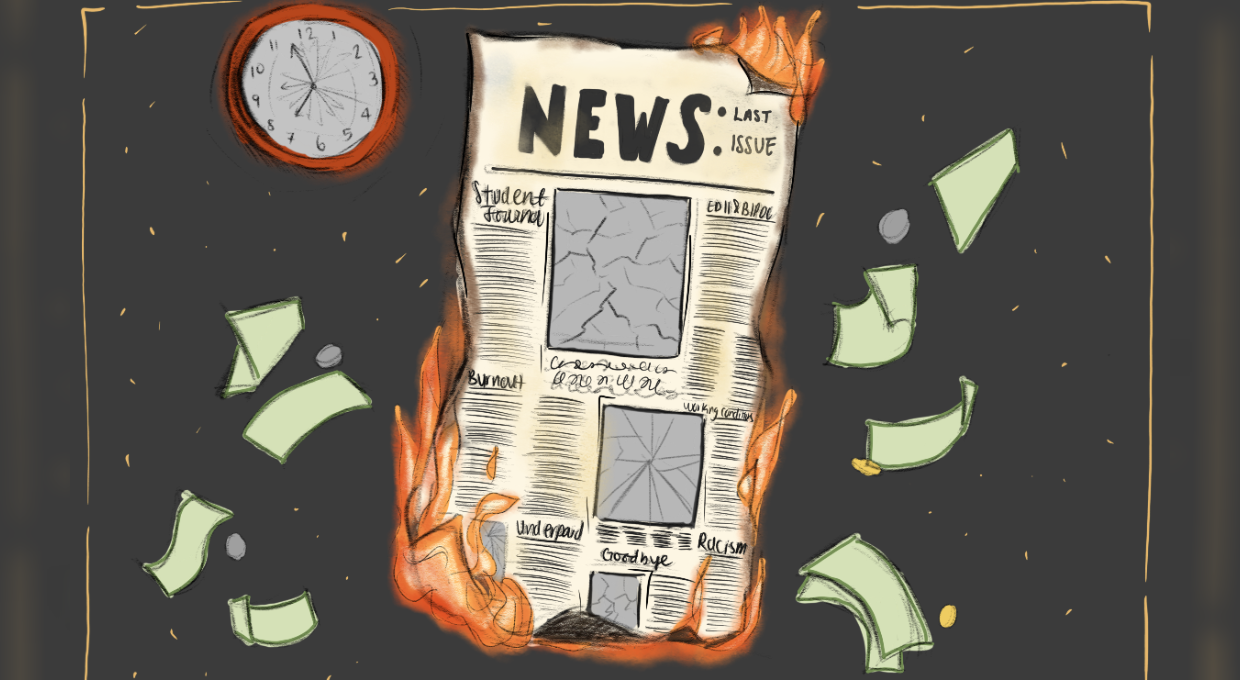
The staff of Concordia University’s student newspaper The Link recently published an editorial airing their frustration at the circumstances that led half their masthead to resign, namely a lack of financial compensation.
The cost of being a student is increasing each year, and that means fewer young people have time to devote to volunteer work on campus—no matter how fulfilling it may be. Depending on unpaid students to sustain organizations crucial to university life, like campus newspapers, isn’t sustainable.
At the same time, the funds necessary to compensate every deserving student volunteer won’t appear overnight. We students have to put in the work to manage student government budgets and increase student fees when necessary to support the organizations that enrich student life and our peers who run them.
According to the editorial, staff at The Link overworked themselves to the point of burnout out of passion for the paper and desire to keep commitments they couldn’t sustain. Student-run media is undervalued and misunderstood by the students and university communities it serves.
Much of this misunderstanding has to do with publications’ failure to evolve with their readers and students’ lack of interest in understanding the operations of their campus media. Culturally, we attribute little value to the time and effort required to produce information for the public to access. No one wants to pay for information because we feel entitled to it.
Student organizations being designed to depend on volunteers excludes people who can’t afford to donate their time. This problem, among others, means affluent, primarily white students are overrepresented in university clubs and organizations.
While we’ve seen the work culture shift at The Journal in the last few years, our paper isn’t so far removed from many of the same challenges The Link has faced. This is a valuable opportunity to reflect on how we can improve our own student-run newspaper and prevent mass resignations in clubs and societies generally.
Like lack of compensation, ineffective or absent Equity, Diversity, Inclusion, and Indigeneity (EDII) training is a widespread problem among student clubs and societies. Marginalized students often end up having to fill the gaps superficial EDII training leaves.
On the other hand, training can only accomplish so much, and at some point, we must tackle our biases ourselves. Hiring committees should do their best to select candidates whose values align with EDII and are likely to treat others with respect. Easier said than done, though.
Opening a permanent EDII-advisor position at the AMS could provide future Journal leadership and staff with support to effectively implement EDII in their operations.
If we’re going to complain about not being paid by organizations that run on student fees, we need to outline concrete goals to help increase paid opportunities. Falling back on passion and neglecting effective organizing doesn’t work, so the time for innovation and restructuring is now.
Some responsibility also falls on student volunteers and employees to set boundaries, ensure they’re in line with the job description, and communicate them to the organization’s leadership.
Student volunteers across all university organizations could get more fulfillment from work they’re passionate about with a shift in operations or built-in strategies to prevent burnout. When student clubs and societies have a versatile team that isn’t spread too thin, we can work less and achieve better, more consistent results.
Just because we love something doesn’t mean we have to do things the hard way.
—Journal Editorial Board
Tags
burnout, Concordia, Concordia Link, Extracurriculars, student journalism
All final editorial decisions are made by the Editor(s)-in-Chief and/or the Managing Editor. Authors should not be contacted, targeted, or harassed under any circumstances. If you have any grievances with this article, please direct your comments to journal_editors@ams.queensu.ca.
